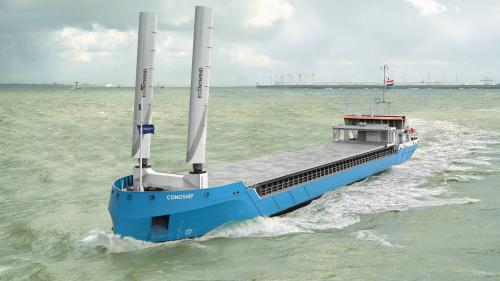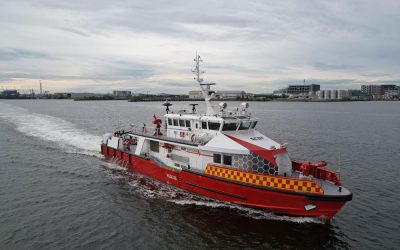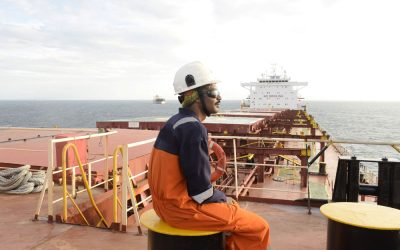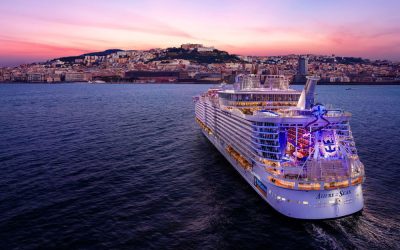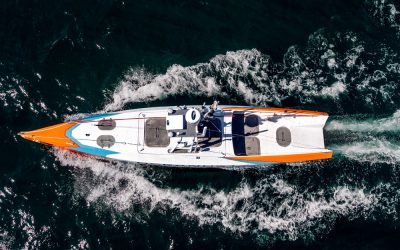The shipbuilding industry in Northern Europe is under pressure, and the region’s high costs mean that potential orders have been lost to Asia. However, a new design concept from Dutch design and engineering company Conoship International Projects (CIP) looks set to give the industry a boost, while also reducing CO₂ emissions from shipping.
Based in Groningen in the Northern Netherlands, CIP has developed what it calls a new standard for low-air draught sea-river coasters. The innovative, future-proof general cargo ship design is the result of an extensive research project carried out by CIP, working with Province of Groningen authorities, potential customers and shipyards. The research showed that with small savings on steel production and the use of production-friendly construction principles and optimised logistics, the 3,600dwt vessels could be built in series at a variety of shipyards in North Western Europe at comparable prices to China, according to CIP’s managing director, Jan Jaap Nieuwenhuis.
“We are very proud of this ultra-fuel-efficient cargo vessel,” he tells TNA. “It’s a step away from how we usually operate. Normally, we design specifically for one shipyard or one owner. This we developed as a project developer at our own cost and our own risk, and now we are free to sell it to a number of shipyards and a number of owners.
“It has been developed according to our philosophy to build in series in the North of Europe, with particularly respect to the northern part of the Netherlands and also just across the border in Germany, and we’ve seen a huge amount of interest in the ship.”
Construction on the first series of six of these diesel-electric powered cargo vessels is scheduled to start in the coming weeks at Fosen Yard Emden, Germany, with the entire series expected to be delivered in 2023. Each vessel will have a length of 88m, a breadth of 13.2m and a draught of 5m, and have a hold capacity of approximately 5,100m3.
Fuel-saving design
In addition to an efficient diesel-electric propulsion system, the vessels are designed with an enlarged propeller in combination with a fuel-saving ConoDuctTail® aft-ship design and optimised hull lines. Nieuwenhuis says the design will produce best in class fuel consumption, especially in wind and waves, and meets phase 3 requirements for the EEDI calculation.
To further improve its performance, the design is also ready for wind-assisted propulsion, as it is prepared for the placement of two rigid Econowind VentiFoils® in the forward area of the ship. Based on the turbosail system developed Jacques-Yves Cousteau in the 1970s, the foils can reduce fuel consumption and CO2 emissions by about 10%, depending on the sailing area and routes.
Additional elements of the design arrangement facilitate a switch to future fuels. “It’s very easy to take off the generators and replace them with a methanol power generator set and then put in methanol tanks as well, or take them off completely and put on liquid hydrogen tanks and fuel cells,” explains Nieuwenhuis. “All these redesign possibilities were taken into account from the beginning of the conceptual design process.”
Shared facility
CIP is working on a number of variants of the ship, including a slightly larger 5,800dwt version. The company is also involved in a feasibility study for a shared facility for the shipbuilding industry in the Northern Netherlands. The project, headed by the Groninger Maritime Board, will investigate how robotisation can be applied in order to improve the productivity of the entire chain.
“It is possible to be competitive, but only if we work together,” says Nieuwenhuis. “Combined with a more efficient production chain and the local realisation of the required reduction technology of CO₂ emissions, we can anticipate an increased replacement demand for innovative fossil-free and low-emission ships, which can be built in the Northern Netherlands instead of in China.”
He adds: “We have seen a shift to focusing on things locally again, a trend that started with Covid, where it was difficult to go to China, and now with the war in Ukraine. This will not only help our shipbuilding industry, but it will also be a big push for short-sea shipping. With more things produced locally in Europe, there will be a need for more ships to transport it all around.”
